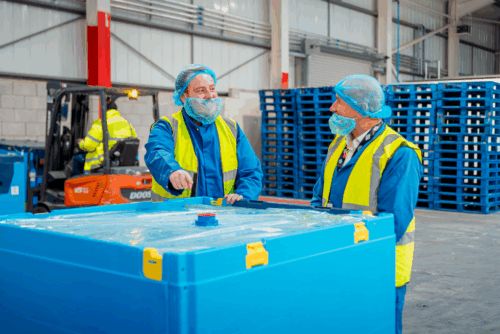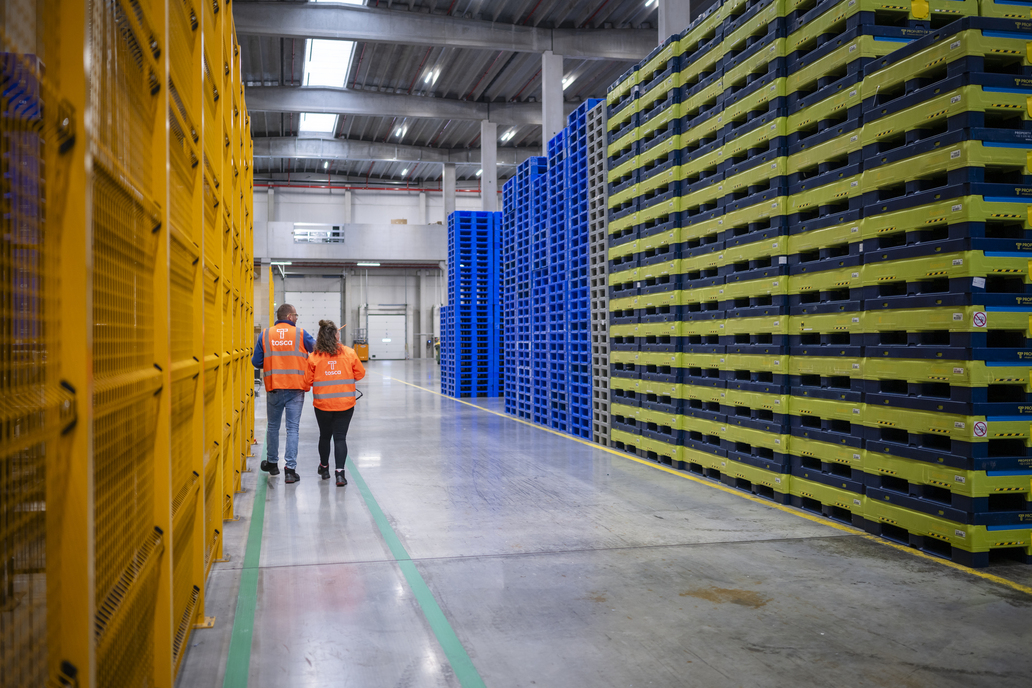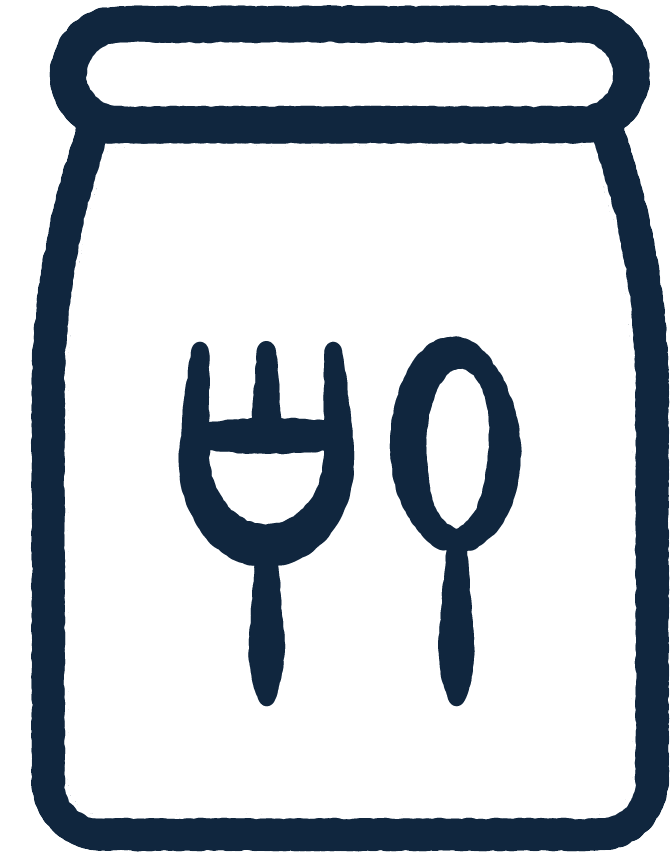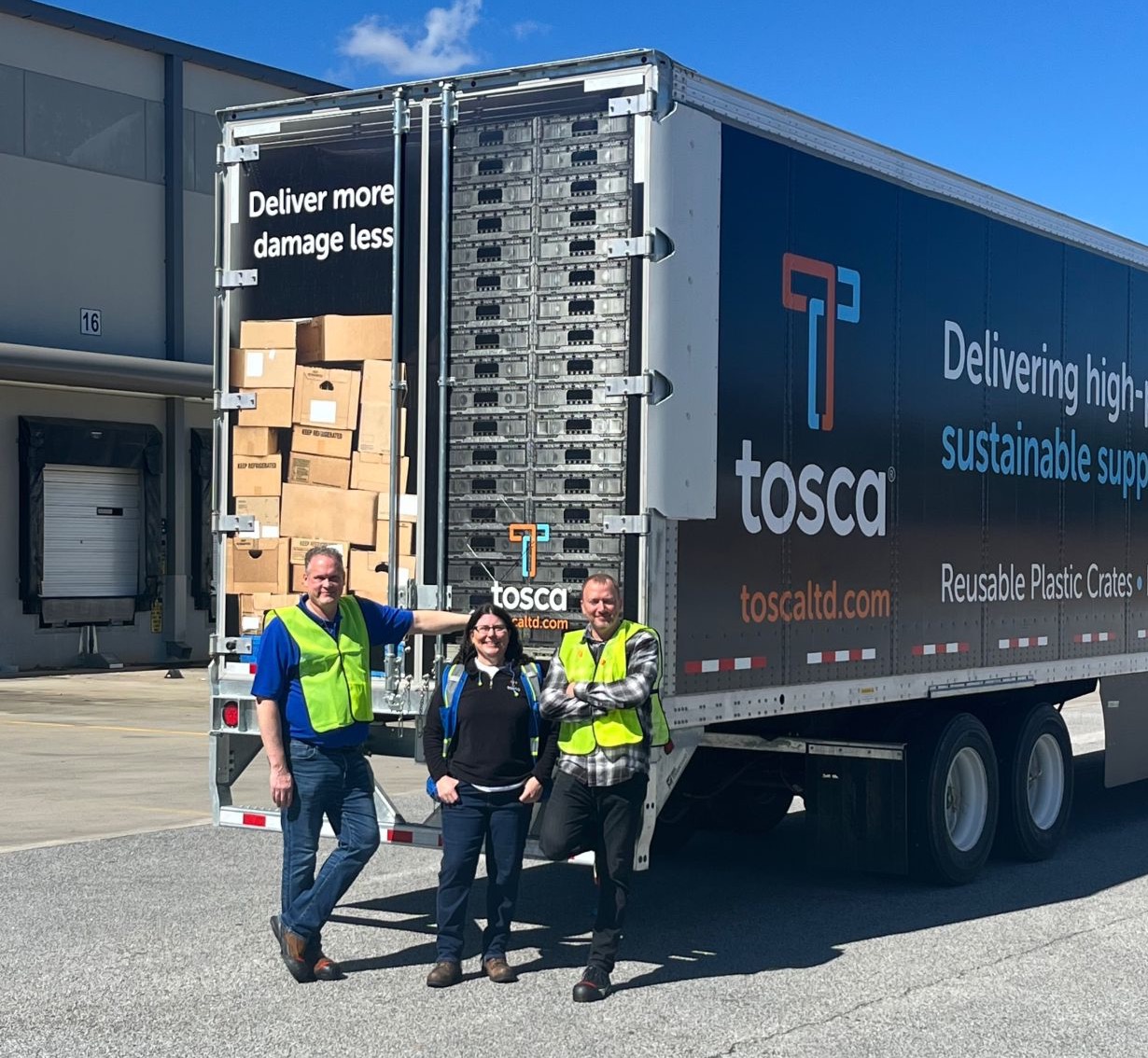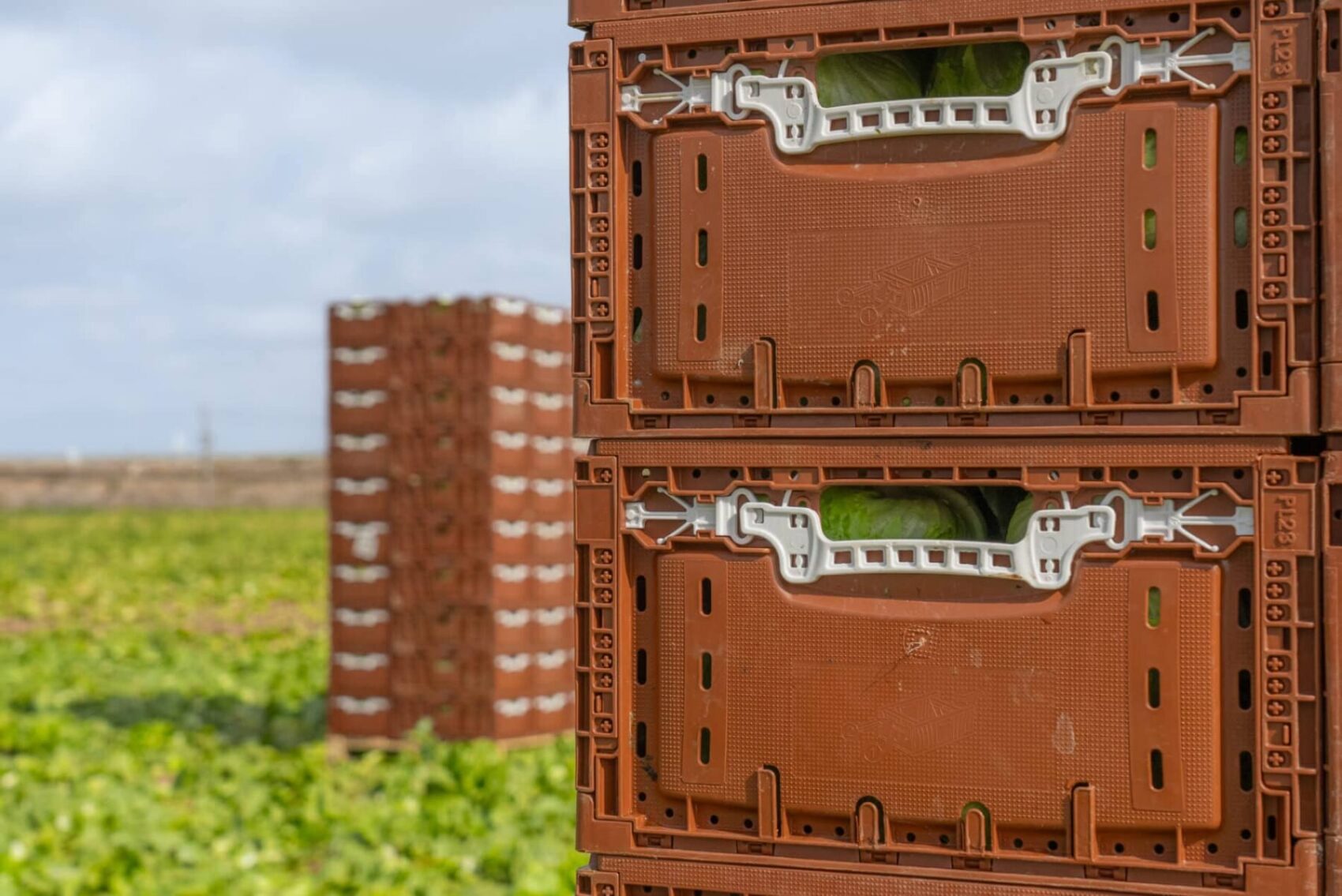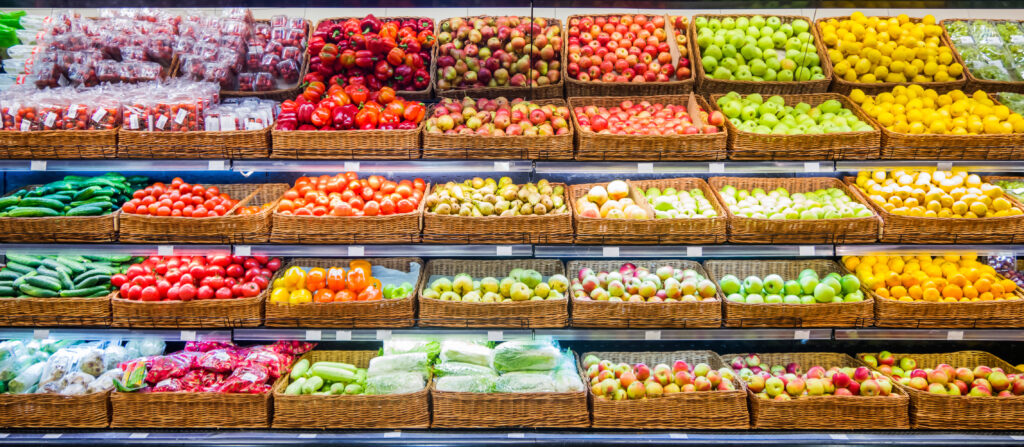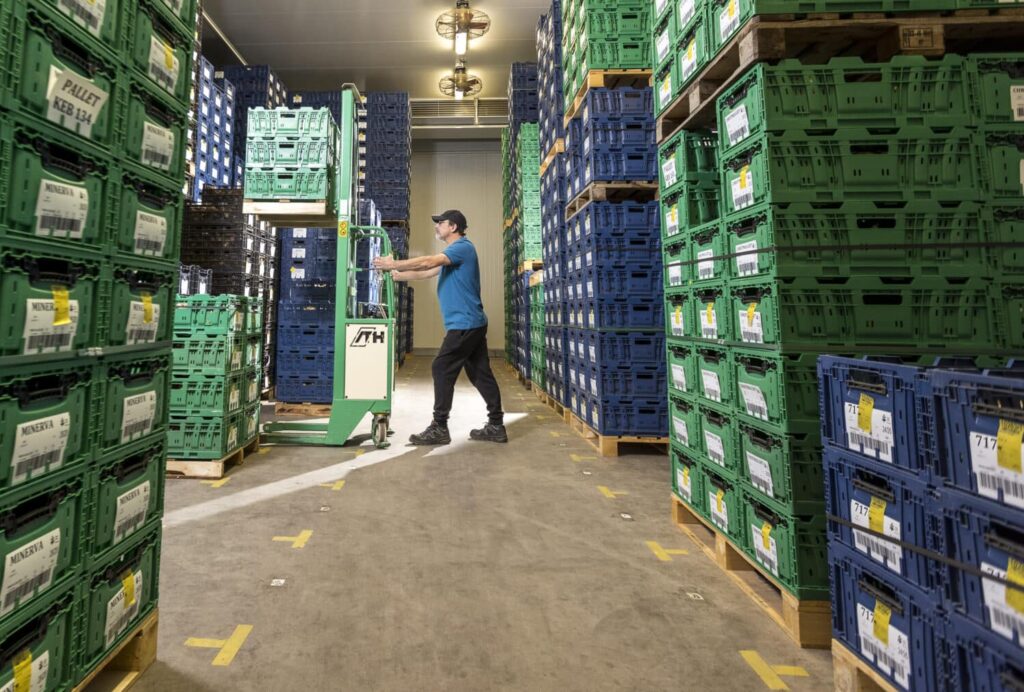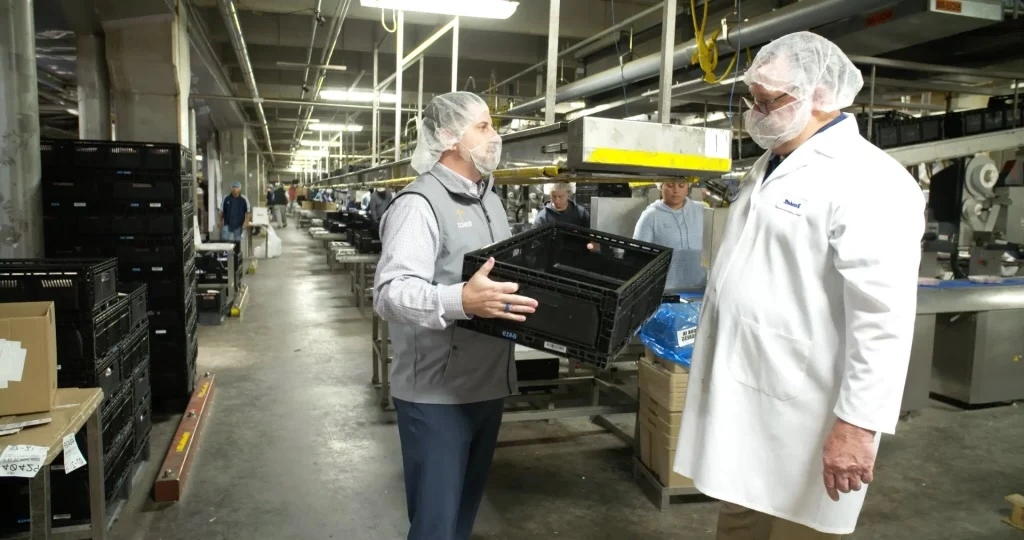Why Plastic Fruit Crates Are Essential in Modern Logistics
Published by Tosca, under Reusable crates
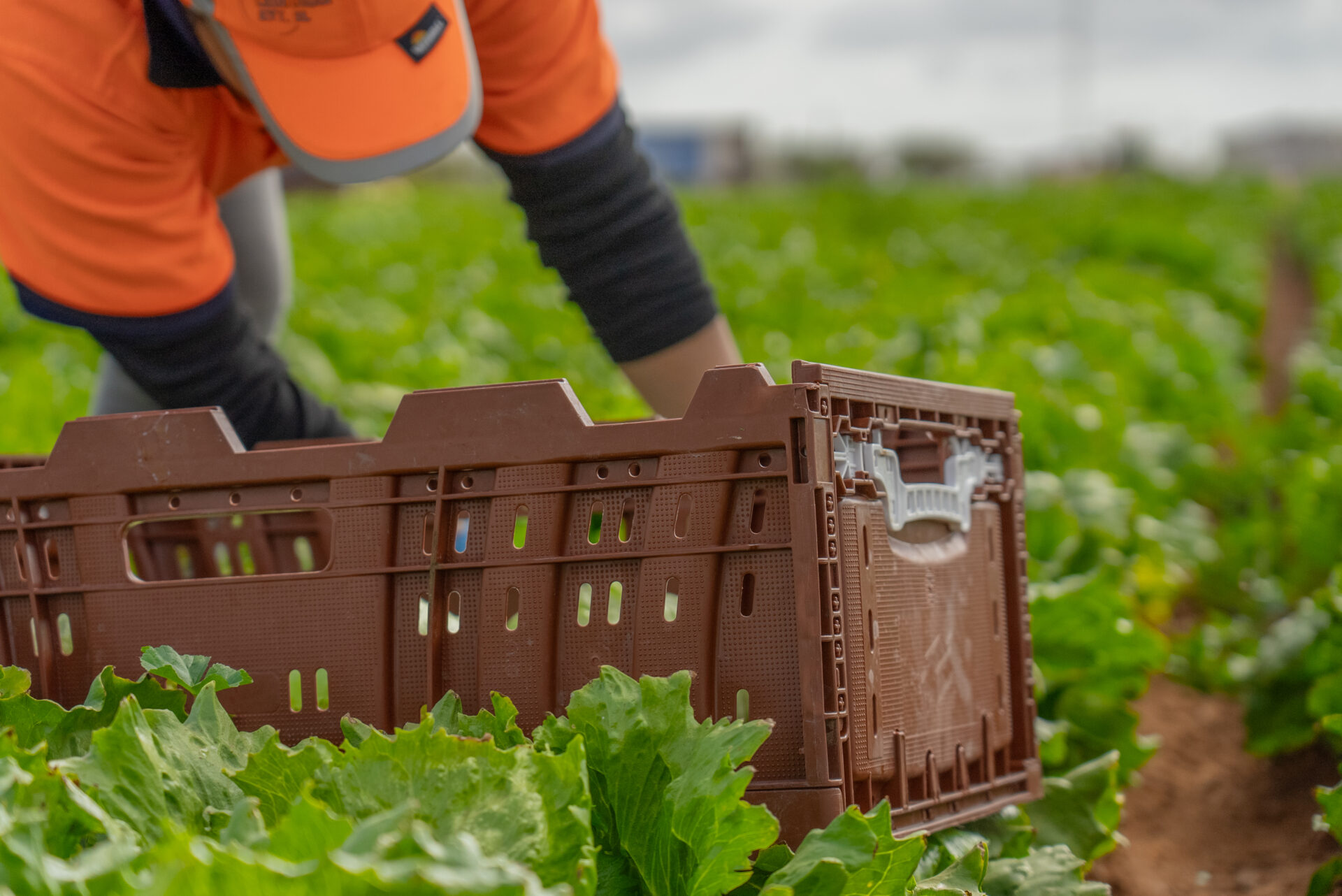
In this article
When it comes to moving fresh produce, there are many important factors to consider: as with anything fresh, time is critical. Additionally, quality, hygiene, and efficiency are also key considerations. There is very little room for mistakes, and from the moment fruit and vegetables are harvested to the point they reach consumers’ baskets, the right crate can make all the difference.
For decades, growers, distributors, and retailers relied on wooden or cardboard boxes to move produce through the retail supply chain. But as expectations for hygiene, durability, and sustainability have evolved, reusable plastic fruit and vegetable crates have become important drivers of efficiency and quality.
As a leader in reusable transport packaging and pooling, Tosca believes that innovation and reliability go hand in hand. Working with many of the world’s top retailers and growers, we provide custom solutions to reduce waste, enhance food safety, and strengthen, clean, and make supply chains more efficient.
Why plastic fruit crates are essential in modern logistics
When it comes to fruit and vegetables, hygiene is non-negotiable. These products often travel directly from the field to the store, with minimal processing or packaging in between. That means every crate must be clean, food-safe, and designed to minimise contamination risks.
Unlike wooden or cardboard boxes, Tosca’s plastic fruit and vegetable crates offer:
- Non-porous surfaces that don’t absorb moisture, preventing mould or bacteria build-up.
- Easy cleaning and sanitisation, allowing crates to be washed and disinfected after every use.
- Food-safe materials, certified to meet strict hygiene standards for handling fresh produce.
Wooden crates can splinter, trap dirt, and harbour bacteria in cracks and fibres, while cardboard collapses or leaks when wet, increasing the risk of contamination and product loss. Plastic crates, by contrast, maintain consistent, hygienic conditions across multiple trips, ensuring that every apple, tomato, or pepper arrives in pristine condition.
In our pooling model, every crate is washed, inspected, and prepared for reuse at our dedicated processing facilities. This rigorous process ensures consistent quality and reliability before crates are redistributed, delivering peace of mind for retailers and growers and serving as one of the key benefits of choosing pooling.

Durability and operational efficiency
Fresh produce logistics demand packaging that’s strong, reliable, and easy to handle. Tosca’s reusable plastic crates are designed precisely for that purpose.
Unlike single-use packaging, which can warp or tear under pressure, Tosca’s crates are engineered for durability. Their rigid construction protects delicate produce throughout transport and storage, while their standardised dimensions make them ideally suited to stacking, automation, and palletisation.
Our foldable, stackable crates also deliver significant efficiencies on the return journey – they can reduce return-transport volume by up to 7x compared to rigid crates, cutting storage needs, transport costs, and emissions.
Tosca offers a range of crate designs to meet specific operational needs:
- Press Lock: Reliable and sturdy for heavy produce.
- Nestable: Space-saving design for efficient return logistics.
- Active Lock: Secure and easy to open and close, ideal for fast-moving supply chains.
- Wood Look: Combines practicality with wood-look visual appeal for in-store presentation.
The benefits of pooling
While the advantages of reusable crates are clear, managing them efficiently across multiple locations can be complex. That’s where pooling comes in, and where Tosca truly stands out.
Pooling is a system in which Tosca owns, manages, and maintains reusable crates on behalf of its customers. Businesses access the crates as needed, avoiding the costs and complications of ownership. Tosca handles the rest, including:
- Collection: Crates are retrieved from retailers or distribution centres after use.
- Cleaning: Every crate is washed and sanitised to food-safe hygiene standards.
- Inspection and repair: Crates are inspected for quality and functionality, and any issues are repaired.
- Redistribution: clean, ready-to-use crates are sent out again for the next cycle.
This circular pooling model ensures that crates are always available, in top condition, and compliant with hygiene regulations, without retailers or suppliers needing to manage them directly. It’s an operationally seamless system that delivers reliability, consistency, cost control, and sustainability.
Compliance with EU regulations (PPWR & EPR)
Across Europe, packaging legislation is tightening. The EU Packaging and Packaging Waste Regulation (PPWR) and Extended Producer Responsibility (EPR) schemes are reshaping how businesses use and manage packaging, focusing on reuse, recyclability, and waste reduction.
Reusable plastic crates are a future-proof solution for compliance. Because they can be cleaned, reused, and recycled within a closed-loop system, they help companies meet PPWR targets for reducing single-use packaging, fulfil EPR obligations on waste prevention, and demonstrate tangible sustainability action to customers, partners, and regulators.
By switching from single-use cardboard or wooden boxes to Tosca’s reusable plastic crates, businesses not only align with regulatory requirements but also position themselves as leaders in sustainable logistics.
Circular economy and sustainability
Tosca’s reusable plastic crates are a powerful sustainability tool. Every crate is designed for multiple life cycles, reducing waste and conserving resources across the supply chain. Compared with rigid crates, our foldable reusable plastic crates (RPCs) also deliver major emissions savings — you can fit up to seven times more empty crates on a truck, which means fewer trucks on the road and significantly lower CO₂ emissions.
At the end of their life, our 100% recyclable assets are fully reprocessed into new crates, keeping materials in circulation and preventing waste from going to landfill. This closed-loop model supports a circular economy, where value is maximised and waste is minimised.
The environmental benefits include:
- Less waste: No more disposal of damaged cardboard or broken wood.
- Reduced emissions: Reuse means fewer raw materials, less production energy, and fewer trucks required.
- Resource efficiency: Crates are reused hundreds of times before being recycled.
From product design to logistics pooling, every element of Tosca’s operations supports a cleaner, more efficient future for the packaging industry.

Retail-ready design and aesthetic appeal
In today’s competitive retail environment, packaging must perform as well in-store as it does in transit. Tosca’s retail-ready crates are designed with both practicality and presentation in mind. A great example is the Wood Look crate, a reusable plastic model that replicates the warmth and character of natural wood while retaining all the benefits of modern plastic.
The result is a crate that offers the charm of traditional design without any hygiene or durability issues. It is especially popular in Italian supermarkets, where fresh produce is often displayed in open, market-style arrangements that highlight natural textures and colours.
Retailers can use Tosca’s wood-look crates create visually appealing displays while maintaining the same food-safe, easy-to-clean standards as Tosca’s other reusable crates. In essence, it represents a perfect balance between functionality, presentation, and sustainability—packaging that looks as good as it performs.
Case Study: Tosca’s Partnership with CRAI
One notable example is Tosca’s partnership with CRAI, a leading Italian supermarket retailer, which has adopted Tosca’s folding Wood Look crates through our pooling model. By transporting fresh produce from the fields to distribution centres and then into stores using these crates, CRAI has enhanced the in-store aesthetic, simplified shelf replenishment, and strengthened their sustainability performance — all while ensuring hygiene, durability and operational efficiency.
Building a fresher, cleaner, circular future
By combining hygiene, durability, and sustainability with aesthetic versatility, Tosca has created a packaging solution that genuinely meets the needs of the modern produce supply chain. From growers and distributors to retailers and consumers, everyone benefits from a system designed to protect quality, reduce waste, and support a more circular future. Get in touch to find out more.
Tags: plastic fruit and vegetable crates, reusable plastic crates, sustainable packaging, circular economy, food-safe logistics, PPWR compliance
